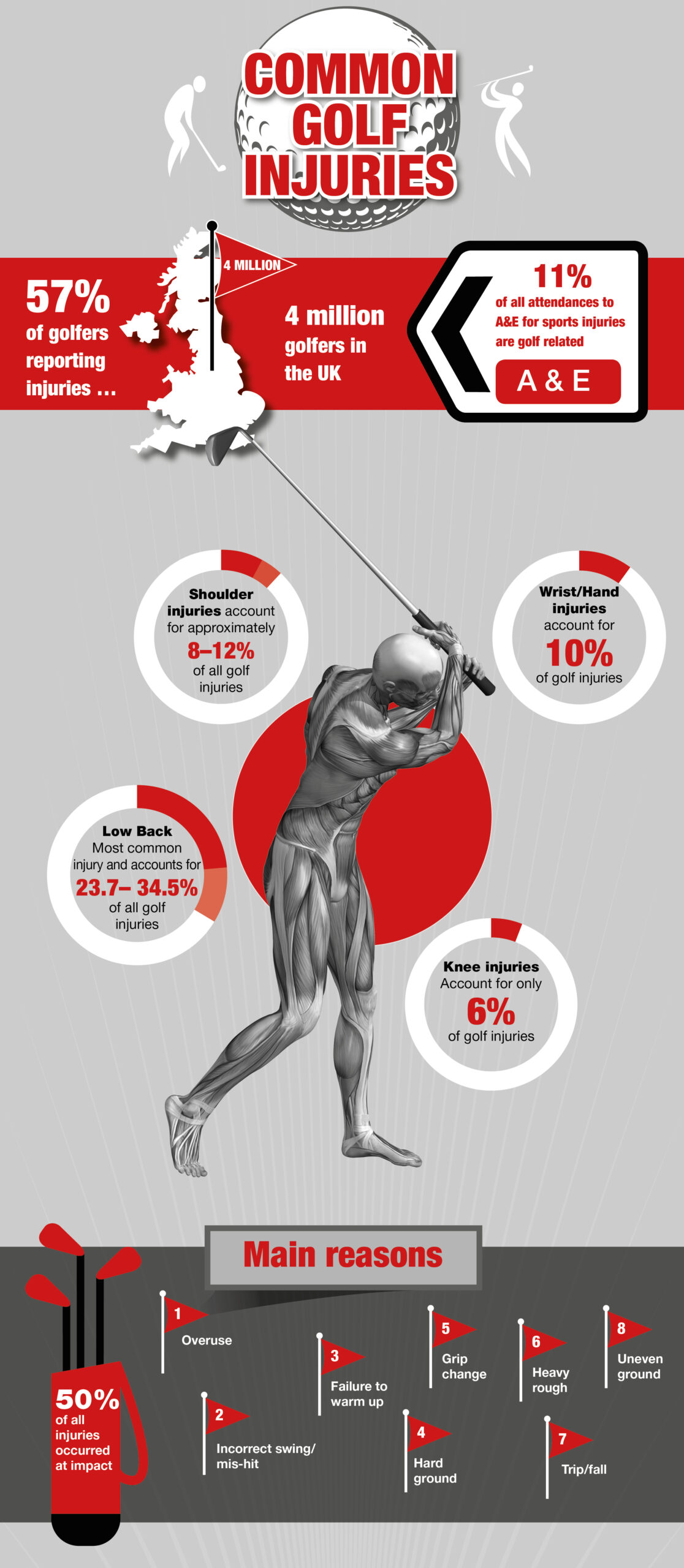Sign up for our daily newsletter
Latest news, reviews, analysis and opinion, plus unmissable deals for bunkered subscriptions, events, and our commercial partners.
The Ryder Cup tees off at Gleneagles in six days time. However, Tiger Woods isn’t on the USA Team this year and wasn’t even in the running because of a recent back injury that required surgery. Why? Injury.
Steve Stricker also didn’t make the cut because of back and hip injuries. In fact, if you look up most of the team members on both sides you’ll find nearly all of them have sustained injuries that have taken them out of major tournaments at one time or another.
Apostherapy, a non surgical medical group which provide pain relief and greater mobility, have looked at what sort of injuries players sustain, why they occur and what could be in store for them at the Ryder Cup this year.
Strains might sound like minor injuries, but badly managed they can be career threatening
Even without looking closely at the research, any golf enthusiast will frequently see news headlines about professional golfers sustaining back, knee and upper body injuries.
‘The main type of injury professional players sustain are strains.’
The headlines do give quite an accurate picture of the most common injuries, which research shows are to the lower back and wrists. The main type of injury professional players sustain are strains. These may not sound too serious, but without proper recovery and treatment, what starts as an acute injury can quickly become chronic and seriously hamper someone’s ability to play at a professional level.
The Ryder Cup doesn’t have prize money but it does have a team you don’t want to let down!
The number one reason why professional golfers get injured is through overuse. Remember that these injuries happen despite being in great condition, having exceptional technique, making few errors like hitting the ground with the club and having access to the best medical care.
There is a tendency for some professionals to continue playing with injuries during tournaments because of the high stakes and the prize money that can ultimately form their income from golf.
However, this is risky business for golfers since it can aggravate injuries, making recovery longer and can impact their ability to play as well in the future due to missed practice and long-term effects of injury on the body.
It could also result in missed tournaments and therefore income. Of course, the Ryder Cup doesn’t offer prize money, but the prestige of the event and the team structures add a new dimension of pressure to play through the pain.
Re-appearance of old injuries isn’t unlikely this year
Hopefully the Ryder Cup will be injury-free this year, but if we do see any injuries they are likely to be sprains and strains to the lower back, shoulders, knees and wrists. Injuries to the arms are most likely to be to the players’ lead arms.
In a survey of professional golfers, of those who reported being injured, 38.6% of those said their injury recurred throughout the year, so there’s a chance we might see the re-appearance of old injuries from players like Thomas Bjorn and Sergio Garcia who have all suffered with injuries earlier this year. Also, with the teams being male, we’re less likely to see elbow injuries than if players were female.
‘The best thing you can do as an amateur to prevent injuries is to keep strong and flexible.’
So, if you’re an amateur golfer who has suffered injury on the golf course, try not to feel too bad. For the professionals it’s a common occurrence throughout their careers due to the high demands placed on them playing at a professional level.
The best thing you can do as an amateur to prevent injuries is to keep strong and flexible, improve your technique, warm up before a game and find a level of practice that suits you. If you’re recovering at home on the sofa, don’t forget you’ll still be able to immerse yourself in the upcoming Ryder Cup action.
ALL ABOUT THE MASTERS
More Reads

The bunkered Golf Course Guide - Scotland
Now, with bunkered, you can discover the golf courses Scotland has to offer. Trust us, you will not be disappointed.
Find Courses








